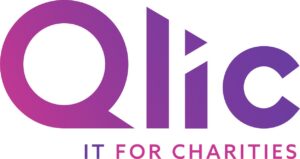Since the covid-19 pandemic, employees all over the world have taken on remote working, and for the most part, it has had some great benefits! As charities plan for the future, they are trying to decide on the best path forward for the future of work. Hybrid working for charities is a solution that has cropped up recently, this combines remote working and in-house office working.

What is Hybrid Working?
Hybrid working can vary from organisation to organisation. For some, it may be that employees must work a few days in the office and the rest remotely. For others, it may be just working from the office for when there and meetings scheduled and the rest of the time is working from home.
Benefits of Hybird working
Ensures the Safety of your Employees – As employees would have the option to work in the comfort of their own home, their risk of being exposed to the virus is reduced.
Improved Satisfaction and Productivity – Employees will highly appreciate not having to commute during the working week. Hybrid working will also minimise workplace distractions and employees also have more freedom to work during the hours that are best for them.
Prioritising your employees – When it comes to working from home, companies are implementing more 1:1 remote meetings on a regular basis to check in with their employees. This can indeed help their employee’s motivation and is a great way to keep them updated on relevant achievements or improvement points.
Reduction in Business Costs – By not having to maintain a physical office large enough for every member of staff, it can dramatically cut costs of rent, office supplies, utilities, etc. With this in mind, employers can invest the money saved into other factors within the charity which they may not have been able to afford previously!
Cons of Hybrid Working
Office Community is Put on Pause – A disadvantage of hybrid working is that the employees working remotely may feel left out in terms of company culture. This is beneficial to build strong group dynamics and ensures that there is good rapport amongst employees. If your charity is looking to hire additional staff, the employee would need to be introduced through online meetings compared to in-person which is more personable.
Increase in Cyber Risks – Employers will have the added worry of getting their workers to set-up cyber security like multi-factor authentication to ensure that their charity data is secure and not at risk of a data breach.
Remote Working Doesn’t Work for all Organisations – Some employees tend to prefer working and are more efficient in an office environment. Equally, some charities aren’t suited to hybrid working, this can be down to fact that some work cannot be completed effectively offsite, or because their employees have set hours that can not be negotiated.
Want to find out whether your organisation has the correct home working solutions for your employees? Click here to book a free consultation with our IT experts to find out how to perfect remote working!







